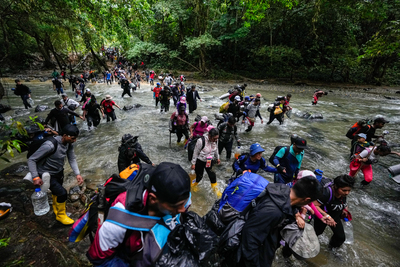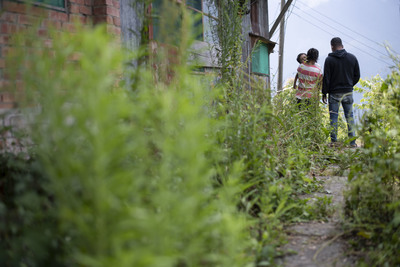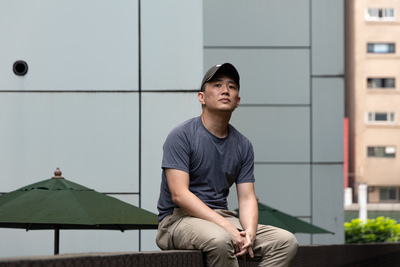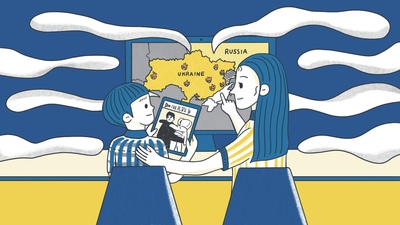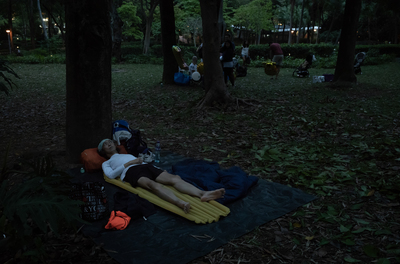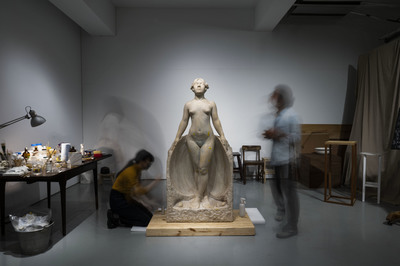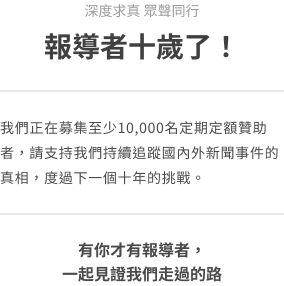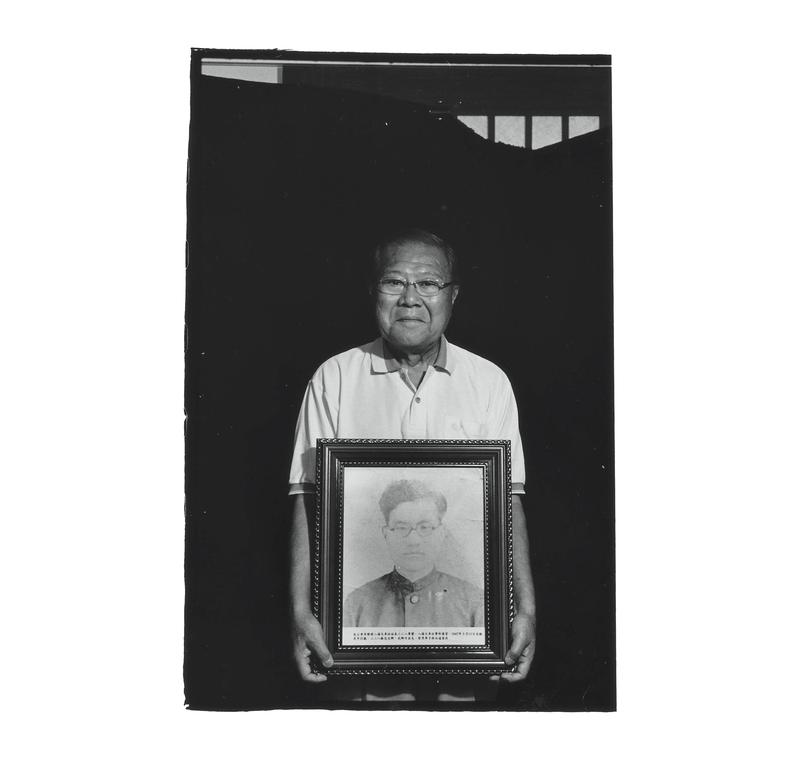
Victims’ families in Keelung and Badu recount the horrors they witnessed during the 228 Massacre and the 308 Massacre.
On February 28th 1947, the uprising that started in Taipei spread to the rest of Taiwan. At 8:00pm, Keelung residents ransacked the City's First Police Precinct, and took the guns; officers from the Keelung Fort Command were ambushed after leaving headquarters; and a crowd in Xizhi intercepted six military vehicles.
On March the 1st, nine officers from Keelung Fort Command boarded a train to Keelung at Aodi Station (now Fulong Station); they clashed with passengers boarding at Ruifang Station, eventually coming to blows. When the train arrived at Badu, the fight spilled out into the station, with the crowd seriously injuring seven soldiers and leaving one missing (later confirmed dead).
Meanwhile, at an ad hoc Keelung City Council meeting that day, deputy speaker Yang Yuan-ting (楊元丁) loudly condemned Taiwan Chief Executive Chen Yi (陳儀)'s government for corruption, and advocated for provincial reform and Taiwanese self-governance. On March the 4th, Yang worked with others to establish a local branch of the 228 Incident Settlement Committee in Keelung.
Rumours began circulating on the 6th that Chen had called in troop reinforcements from China. As the 21st Division 438th Regiment made landfall in Keelung on the 9th, soldiers casually fired machine guns from the decks of the ship. Once the troops disembarked, they "tracked down rioters" and shot indiscriminately into the streets of Keelung.
A day later, Yang Yuan-ting's body was discovered floating in Keelung harbour. On the 11th, the Army announced it had restored order. But deputy speaker Yang wasn't the only reported casualty in Keelung.
- Dr. Kuo Shou-yi (郭守義), a prominent Keelung physician and friend of Yang Yuan-ting was executed on March 22nd.
- Chou Jin-po (周金波) and Yang Kuo-jen (楊國仁) — the sons of renowned doctor Yang A-shou (楊阿壽) — were arrested on March 9th. Their corpses were later found floating in the ocean.
- Telecommunications bureau worker Lin Han-chiang (林漢強) was visiting Keelung from Taoyuan for work on March 8th. A few days later, his body was found floating in Keelung harbour.
- Kao Mien (高勉) was killed by a stray bullet while cooking.
- Customs agent Chen Kuo-ming (陳國銘) was badly injured by gunfire while buying vegetables at the market. Barge crew member Chen Chuan-hao (陳傳浩) was shot in the foot by a stray bullet at the train station.
- 25-year-old Hsiao Lai-fu (蕭來福) and his family owned a variety store in Keelung, but after constant harassment by soldiers, Hsiao and his family — including his 17-year-old brother Hsiao Ping-huang (蕭炳煌) — took an Okinawa-bound ferry to seek refuge on Yonaguni island. They were never heard from again.
- In retaliation for soldiers clashing with passengers at Badu Station, the Keelung Fort Command orders two armoured vehicles to surround the station, and arrested 13 individuals, including Li Tan-hsiu (李丹修), Chang Shui-lien (張水連) and Su Shui-mu (蘇水木). They were never heard from again.
- Keelung residents saw trucks filled with people, many with their palms pierced with railway wire, and tied together in a line. They were thrown all together into Keelung harbour.
There is some debate among 228 scholars about the exact date of the 21st Division’s arrival in Keelung. Eyewitnesses say they saw a boat arrive on the evening of the 7th or the morning of the 8th. Others note that it was an ROC Military Police boat carrying two units from Fuzhou that arrived on the 8th, not the 21st Division. There are also reports that it was the Keelung Fort Command that fired wildly into the streets of Keelung on the 8th. Regardless of whether the 21st Division arrived on the 8th or the 9th, the slaughter of Keelung residents began on the 8th. Keelung City Hall holds its 228 Massacre memorial every year on March 8th.

Li Tan-hsiu (李丹修) (1910-1947) Birthplace: Keelung Interviewee: Li Wen-ching (李文卿) Relationship: son
My father was the stationmaster at Badu Train Station. On March 1, 1947, a fight broke out between Chinese soldiers who boarded at Aodi Station and the passengers; they fought all the way past Sijiaoting Station, until one of the soldiers threatened a train conductor to stop at Badu Station. That made the passengers even angrier, and one of the soldiers jumped from the train into the Keelung River and drowned. My father assisted the soldiers with their injuries and arranged transportation for them to leave.
But on March 11th, Chinese soldiers circled Badu Station and began firing. They didn't care who they were firing at, and they even stabbed to death one of station employees while he was kneeling down. They killed five civilians at the station. Then they arrested my father and twelve other people working at the station. We never heard from father again.
After that, my whole family was banned from the Railway Bureau residences, and our relatives didn't dare lend a hand. So my brothers and I moved into a waste storage unit a little over three square metres wide. We made a living collecting garbage and selling snacks on trains. Later, I was accepted to work at the Railway Bureau’s telecommunications unit, and then became a station clerk at Wudu Station. I also worked at fruit stands, shipping companies and metal factories in my spare time to save money and ensure my three younger brothers would become successful.
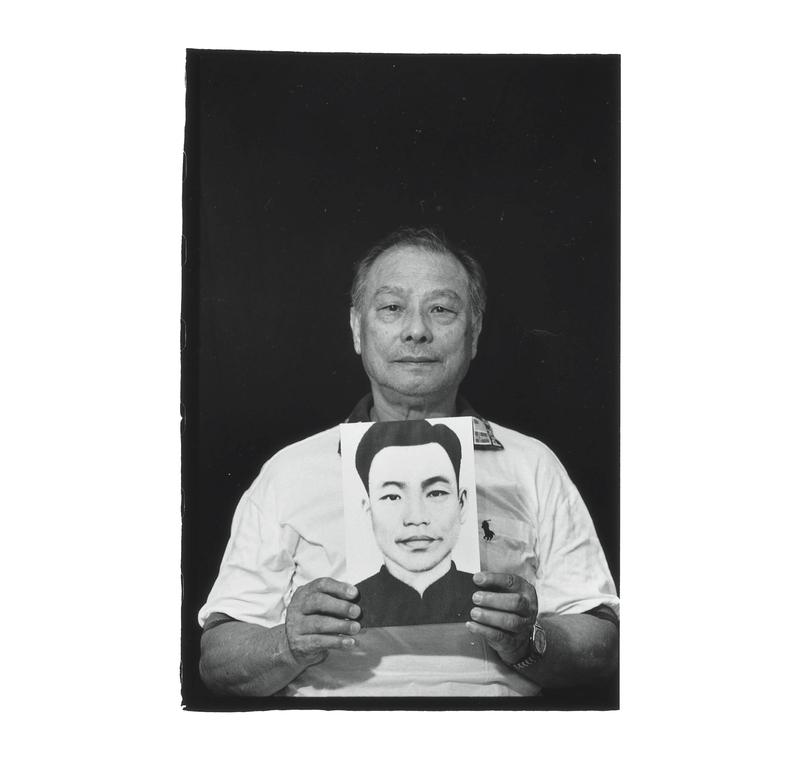
Su Shui-mu (蘇水木) Birthplace: Ruifang Interviewee: Su Feng-fu (蘇豐富) Relationship: son
On March 11th, the Chinese Nationalists surrounded Badu Station, killing and imprisoning some of the Railway Bureau staff. At the time, my father was deputy stationmaster. When he disappeared, my mother looked everywhere for him. She thought, even if he’s dead, I still want to see his remains. If she heard there was a place with corpses, she would run to that place and take a look. To an outsider, this might be difficult to understand.
My mother worked hard to take care of her seven children. At that time, my older brother and I were 15 and 12 years old, and we worked all kinds of miserable jobs to eke out a living and support our family. It's by the grace of god that my siblings grew up so healthy.
My father worked for the Railway Bureau right after graduating from high school, and dedicated ten years of his life to that job. The Bureau never sent anyone to visit with our family to express their condolences, much less give us some form of compensation. Only after many years, was a 228 Monument set up at Badu Station, giving our family a place to mourn and commemorate our father. He was dedicated to Taiwan Railways, and he went missing in the line of duty.
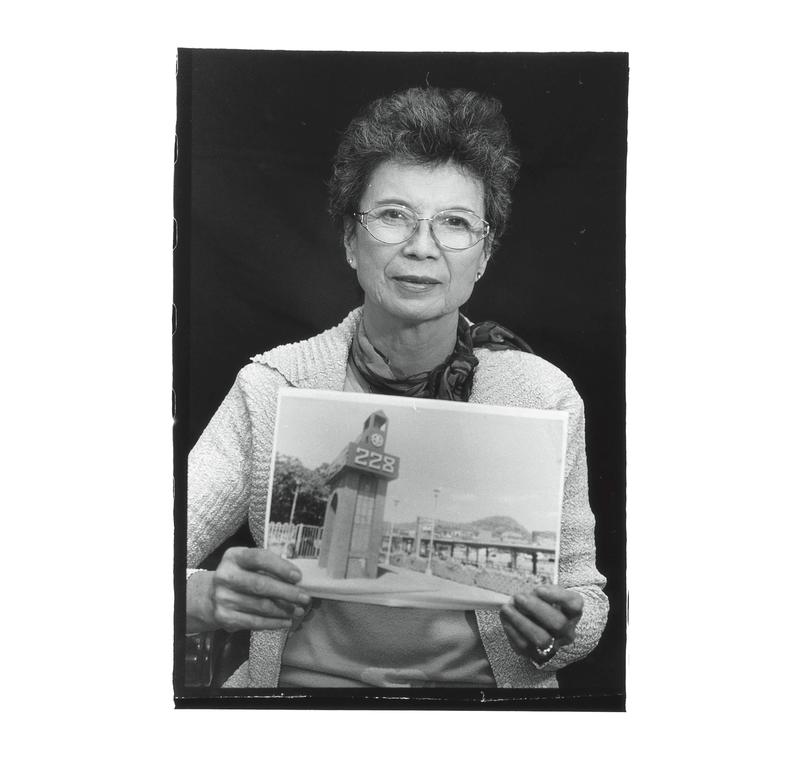
Chang Shui-lien (張水連) (1907-1947) Birthplace: Zaoqiao Township, Miaoli County Interviewee: Lin Chang Mo-tsai (林張末仔) Relationship: daughter
My father worked in the cargo division at Badu Station. It was pandemonium outside on the morning of March 11th, and there was no way for me to get to school. So my friend and I went to the station to find my father. We witnessed soldiers shoot dead one of my father's colleagues. They threatened us to leave.
At nightfall, someone notified our family that my father died at the station platform. My mother could only beg some elderly aunties to help bring back his dead body using a wooden door as a stretcher. The kneecaps on my father's pants were worn out, and there were coal cinders underneath his fingernails; it's obvious he struggled before his death. Father was stabbed by a bayonet three times in the back of his head, and an additional thirteen times in his back. But at least in the end, we retrieved his full body.
Four years later, my mother would still cry when she saw my father’s clothes. When I was in primary school, I took these momentos of my father to my grandfather’s house, so my mother wouldn’t see them anymore.
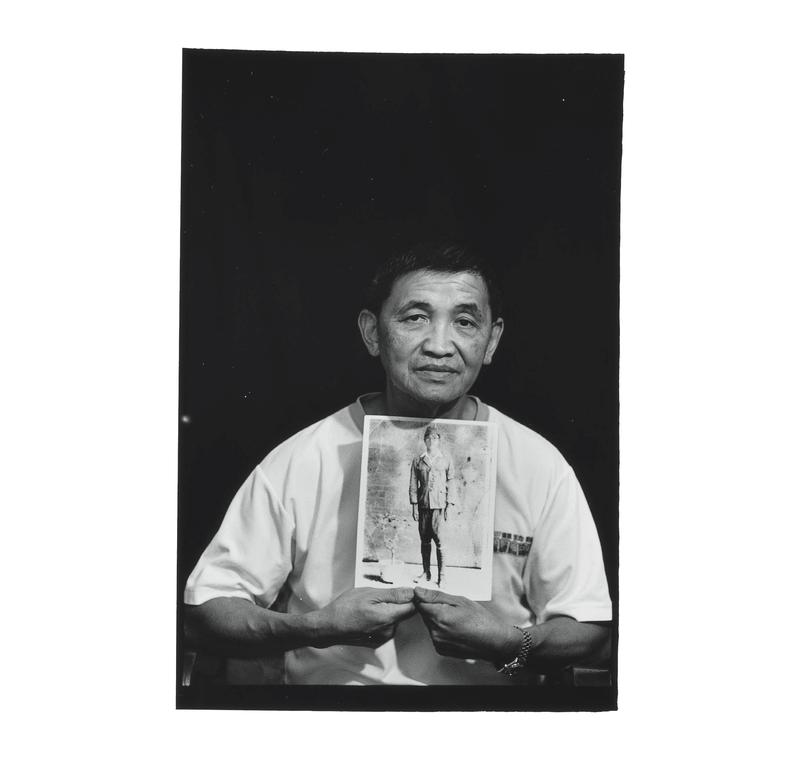
Wang Kui-liang (王貴良) (1917-1947) Birthplace: Houlong Township, Miaoli County Interviewee: Wang Jie-po (王潔波) Relationship: son
My father was a switcher at Badu Station. On March the 1st, soldiers stationed in Aodi boarded the train to Keelung, and tyrannized the passengers; they brawled all the way from Ruifang to Sijiaoting Station. When the train arrived at Badu, some of the passengers chased after the soldiers.
On the 10th, Keelung Fort Command issued an official notice to Badu Station that it intends to arrest the passengers who beat up the soldiers. But station manager Li Tan-hsiu reported that it was impossible to identify the offenders that night. The following night, the Keelung Fort Command sent two military trucks to surround the station. Before they arrested a dozen of the station workers, they shot a few people dead.
One of the majors stationed at a nearby artillery command tried to talk sense into the soldiers, but relented and let the trucks take them anyways. They were never seen again. We heard later from a soldier at the artillery command that they were all killed. They picked up another train conductor, Hsu Chien-shan (許尖山), off the streets of Badu. They tied up Hsu's hands with iron wire, and threw him into Keelung harbour.
My family couldn't make ends meet after father passed away. I woke up every morning at 3am to sell yams at a market in Miaoli. I walked barefoot over a mountain from Houlong to get there. Life wasn't easy.
(To read the Chinese version of this article, please click: 基隆的228故事:他們被鐵線穿掌、丟下基隆港 )
深度求真 眾聲同行
獨立的精神,是自由思想的條件。獨立的媒體,才能守護公共領域,讓自由的討論和真相浮現。
在艱困的媒體環境,《報導者》堅持以非營利組織的模式投入公共領域的調查與深度報導。我們透過讀者的贊助支持來營運,不仰賴商業廣告置入,在獨立自主的前提下,穿梭在各項重要公共議題中。
今年是《報導者》成立十週年,請支持我們持續追蹤國內外新聞事件的真相,度過下一個十年的挑戰。

